#william blake
Text

-Illustration to Milton`s Comus-
43 notes
·
View notes
Text
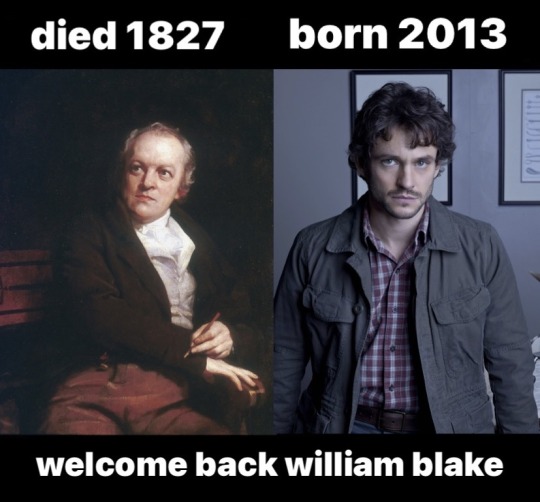
39 notes
·
View notes
Photo
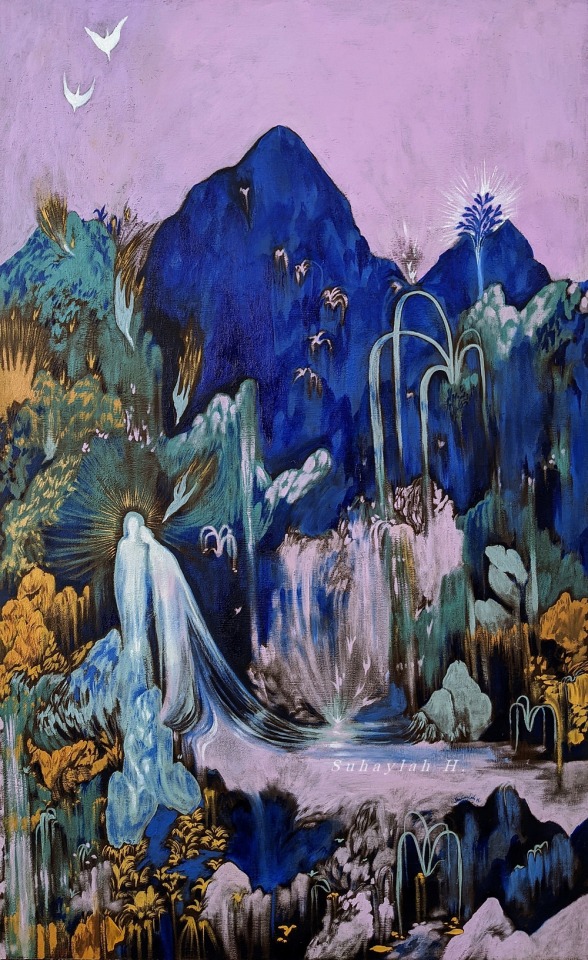
Lovers Sempiternal (2022)
oil on wood panel
Shop: suhaylah.bigcartel.com
Patreon: patreon.com/suhaylah_h
IG: @suhaylah.h
#suhaylah#suhaylah h#art#artists on tumblr#oil painting#symbolism#symbolist art#symbolist painting#landscape#surrealism#mystical art#magical painting#apparitions#william blake#nature art#landscape art
18K notes
·
View notes
Photo
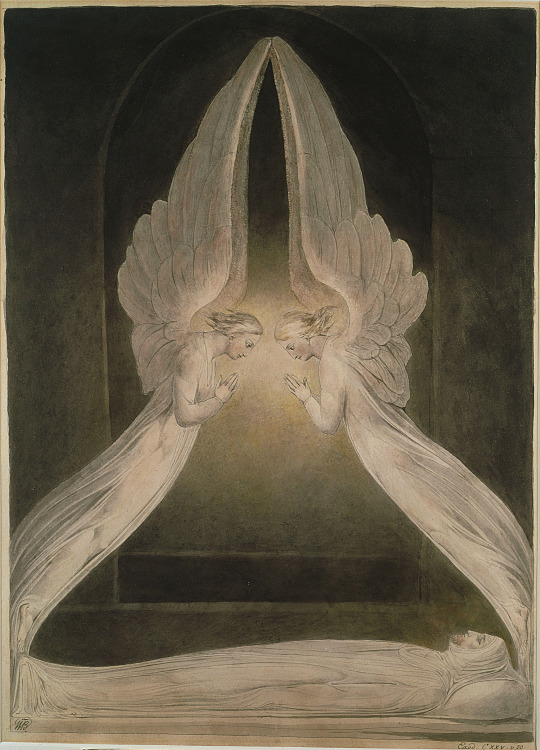
Christ in the Sepulchre, Guarded by Angels
William Blake
2K notes
·
View notes
Text
William Blake - an introduction for Good Omens fans
I have sent @neil-gaiman an ask regarding his feelings toward the poet/artist William Blake a couple of times, but no doubt due to the size of the poor man's inbox I haven't received a response. So I did a Google search to see if he's spoken about Blake before, and it did indeed come up with a fair few hits. I think you might enjoy seeing this Twitter post if you haven't already, the painting is from William Blake's illustrations to Paradise Lost.
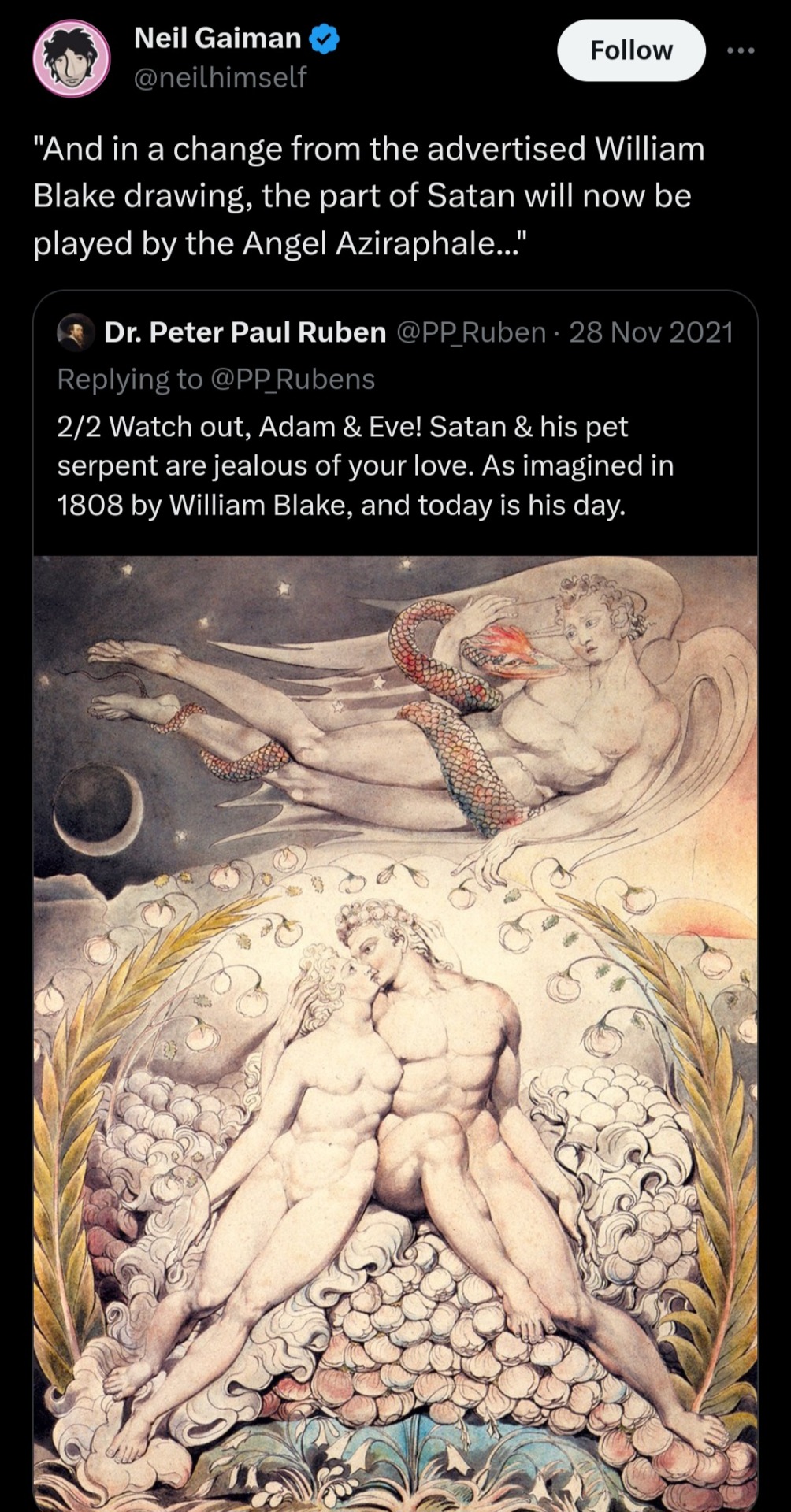
It's not surprising that an author like Neil Gaiman might have an interest in Blake. A visionary from a young age, his imagination was such that he was surrounded by angels made visible in his mind's eye, and he interpreted these visions through poetry, painting and engraving, and self-printed and published many of his own works. This gave him complete freedom to say exactly what he wanted.
Though he had a passionate faith in God, he also had a deep distrust of the church as an institution, and disliked the use of religion as a means of control. This poem from "Songs of Experience" perhaps summarises his feelings best:
"I went to the Garden of Love,
And saw what I never had seen:
A Chapel was built in the midst,
Where I used to play on the green.
And the gates of this Chapel were shut,
And 'Thou shalt not' writ over the door;
So I turn'd to the Garden of Love,
That so many sweet flowers bore.
And I saw it was filled with graves,
And tomb-stones where flowers should be:
And Priests in black gowns, were walking their rounds,
And binding with briars, my joys & desires."
In his poetry there is often an incongruity with the generally accepted religious ideas of what is good and evil, Angel and Demon. In The Marriage of Heaven and Hell (there's a title that should make any GO fan sit up and pay attention) he tells us that "in the book of Job, Milton's Messiah is called Satan", signifying that he feels it is Lucifer/the devil who is the true Messiah of Paradise Lost.
He gives us The Voice of the Devil and Proverbs of Hell, and has Angels being transformed into Demons through enlightenment. He tells us that Jesus broke all of the 10 commandments, yet was still virtuous because he acted according to his own morality rather than rules.
The god-figure of his later works, Urizen, generally comes across as malevolent, seeking to bind and control, whilst Los, the Satan/Messiah figure represents freedom, imagination and creativity.
"Restraining desire" and acting contrary to your own nature seem to be the only real evils for Blake.
He expressed his faith through a love of the world and the beauty in it, summed up in this quote:
"When the Sun rises do you not see a round Disk of fire somewhat like a Guinea? O no no I see an innumerable company of the Heavenly host crying Holy Holy Holy is the Lord God Almighty".
He saw "God" in everything, in all the wonders we have around us, and considered writers/poets and religious prophets as essentially the same, since they both have a connection to the divine, and express it through stories.
It's quite ironic that probably his most famous poem, Jerusalem (the one that starts "and did those feet in ancient times walk upon England's mountains green"), was made into a very popular church hymn, yet it is supposed to be satirical in nature. The poem recounts the myth that Jesus may have visited England in his boyhood, and Blake is expressing his disbelief at that notion and the unworthiness of England.
Did I have a point to all this? Mostly to show my hand as a massive Blake nerd, but also to hopefully demonstrate that there's a lot of common ground between his ideas and those expressed in a show/book like Good Omens, and hopefully to inspire some of you who may not be familiar with Blake to seek him out. In particular I'd recommend The Marriage of Heaven and Hell to any and all.
EDIT: I should have thought to include this, here's Michael Sheen reading a Blake poem. I have the CD this is from, he reads several by Blake, as well as other poets I love ❤️ 😍
youtube
#william blake#good omens#good omens book#good omens 2#good omens s3#neil gaiman#crowley#aziraphale#english literature#literature#poetry#go2#good omens s2#good omens season 2#book omens#michael sheen#Youtube
1K notes
·
View notes
Text
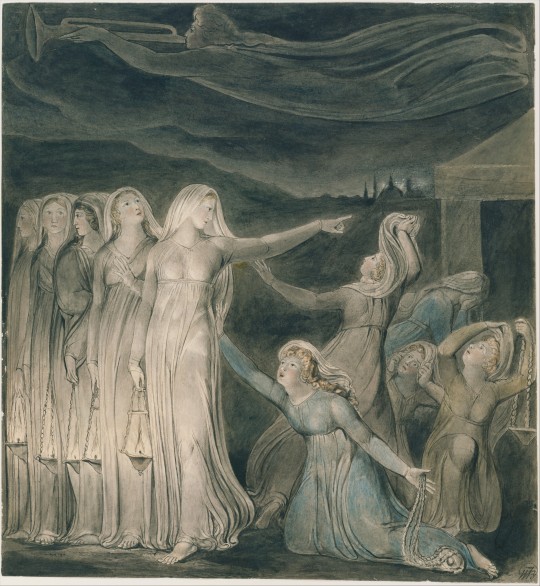
The Parable of the Wise and Foolish Virgins, William Blake, ca. 1799-1800
#art#art history#William Blake#religious art#Biblical art#Christian art#Christianity#parables#parables of jesus#Romanticism#Romantic art#English Romanticism#British art#English art#18th century art#drawing#watercolor#pen and ink#Metropolitan Museum of Art
849 notes
·
View notes
Text
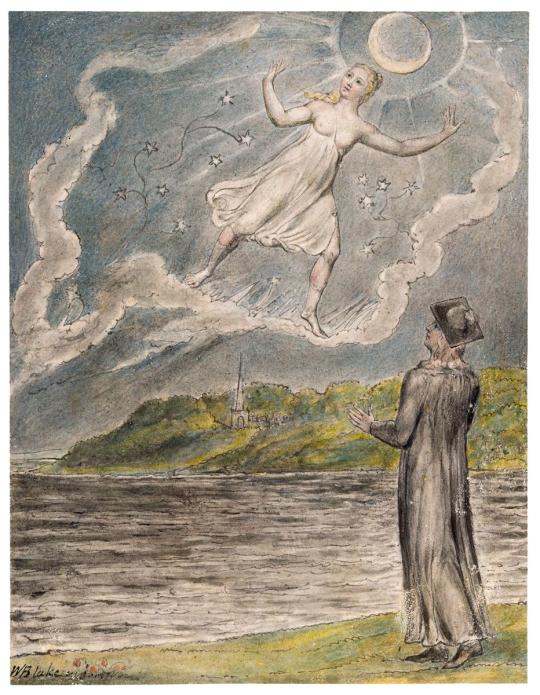
The Wandering Moon by William Blake (1757 - 1827)
746 notes
·
View notes
Text



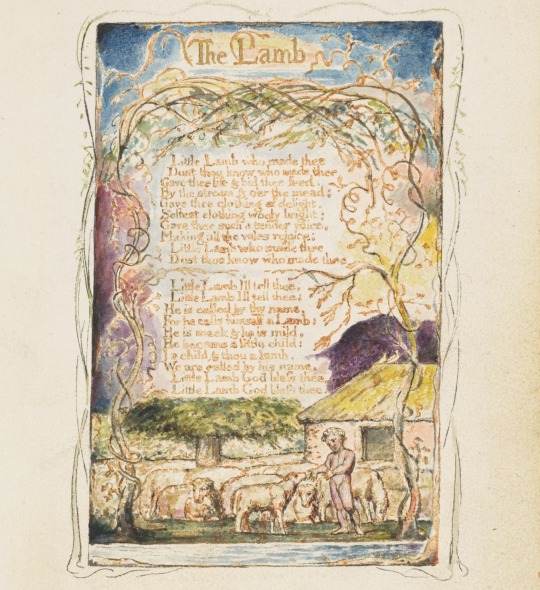
April is National Poetry Month, and at JSTOR, we celebrate the boundless creativity that poetry inspires across various forms of expression. 🎨 📜
This month, we highlight the seamless blend of visual art and verse, featuring stunning prints by William Blake from The Metropolitan Museum of Art's open collection. Blake's work exemplifies the powerful synergy between poetry and imagery, reminding us that words and art are profoundly interconnected.
Images: William Blake. Songs of Innocence: Spring. [1789] printed ca. 1825. The Metropolitan Museum of Art.
William Blake. Songs of Experience: The Tyger. [1794] printed ca. 1825. The Metropolitan Museum of Art.
William Blake. Songs of Experience: The Angel. [1794] printed ca. 1825. The Metropolitan Museum of Art.
William Blake. Songs of Innocence: The Lamb. [1789] printed ca. 1825. The Metropolitan Museum of Art.
237 notes
·
View notes
Quote
It is easier to forgive an enemy than forgive a friend.
William Blake
#William Blake#motivation#quotes#poetry#literature#relationship quotes#writing#original#words#love#relationship#thoughts#lit#prose#spilled ink#inspiring quotes#life quotes#quoteoftheday#love quotes#poem#aesthetic
324 notes
·
View notes
Text
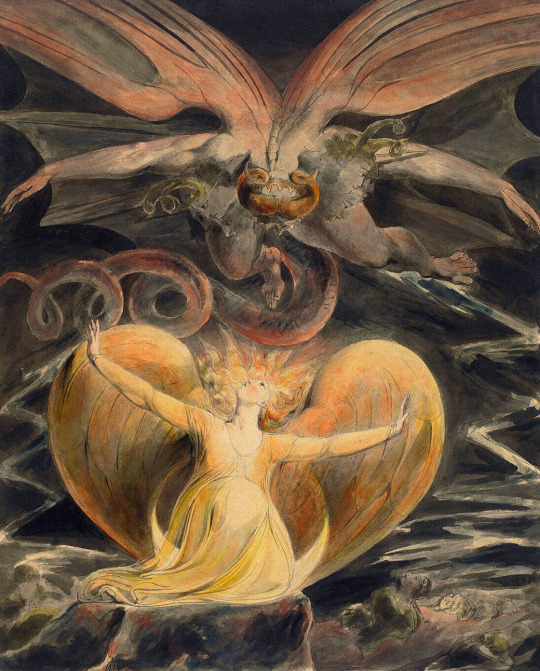
William Blake - The Great Red Dragon and the Woman Clothed with the Sun, c. 1805-1810
#william blake#the great red dragon...#the woman clothed with the sun#occult art#esoteric art#biblical horror#art#painting
526 notes
·
View notes
Text
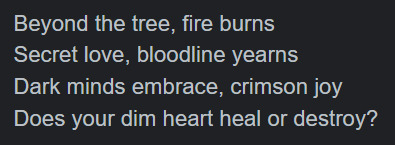

bury the light // "the sick rose" by william blake
#i have a folder of william blake excerpts that are similar to bury the light lyrics#i dont know if anyone has done this before but i honestly might make a vid comparing bury the light lyrics to blake poems!#devil may cry#dmc#dmc5#vergil dmc#devil may cry 5#vergil sparda#bury the light#william blake#poetry
231 notes
·
View notes
Text
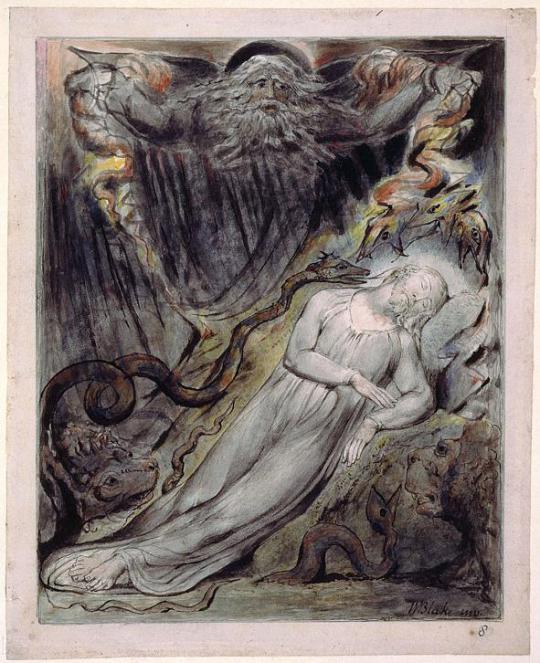
-Illustration to Milton`s Comus-
23 notes
·
View notes
Text
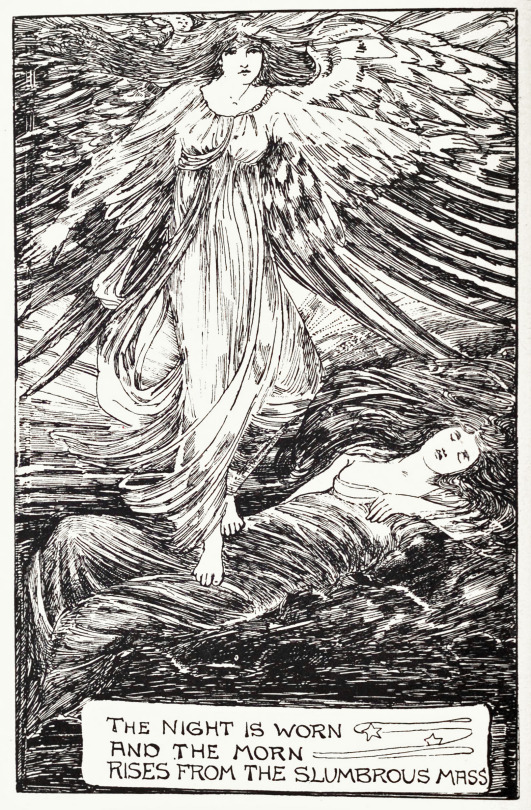
Celia Levetus (1874-1936), ''The Songs of Experience'' by William Blake, 1902
Source
#Celia Levetus#canadian artists#william blake#The Songs of Experience#vintage illustration#vintage art
389 notes
·
View notes
Text
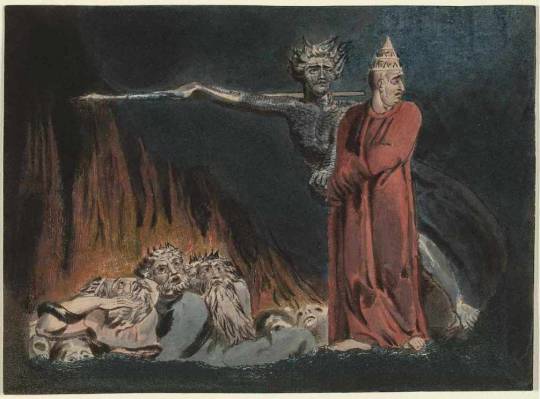
'Lucifer and the Pope in Hell' - William Blake, 1796
290 notes
·
View notes
Text

‘Jerusalem, Plate 100’ by William Blake, c. 1804-1820.
#william blake#vintage art#classic art#art#art history#old art#art details#vintage#moody art#symbolism#painting#watercolor#ink#etching#drawing
840 notes
·
View notes
Text
Personification—a challenge
My understanding of the Law of Assumption has significantly evolved since I started this blog about five months ago, I’ve decided to review and revise the contents of my account, and I thought about the many different ways that I could convey my new understanding of the Law of Assumption and decided that the best way would be through a fun challenge! I took inspiration from @divinegrapes’ "Operation Revive the Law of Assumption community"
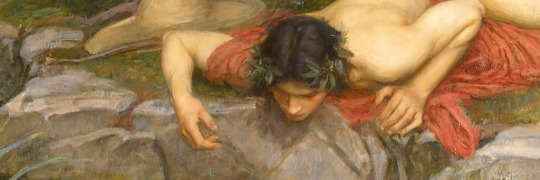
Hello, I am Amphitrite—better known as Aphrodieties and I will be your host for this one-week challenge! I will introduce to you some fundamental topics for understanding this challenge and completing it successfully;
Understanding consciousness
Creation is finished
Consciousness is the only reality
The Relationship between Greek Gods and the Law of Assumption
The Challenge
Understanding consciousness
The definition of consciousness is difficult to explain as the term has been recycled and reused by a variety of different manifestation communities and each variation of the word, means something completely different. Consciousness can refer to the subconscious mind, universe, god, imagination, or reality depending on who you ask, but I propose a simpler definition—consciousness is awareness, that's all. Consciousness implies being awake or awakened to an inner realization of a fact, a truth, or a condition. Here's a little example for you, If I am sick, I must be conscious of the fact that I am unwell and I am conscious of this because I FEEL IT. I feel sick, and I am conscious of the fact that I am sick, and thus I am sick. When I refer to consciousness, I am referring to awareness, and that is what it means to be.
Creation is finished
Creation is finished is the idea that all things exist simultaneously; creation is finished is fundamental to the Law of Assumption and the success of an individual in their journey—wish fulfilled, Sabbath state, and living in the end, all entertain the idea that creation is finished. If everything already exists, then what is there to manifest? Creation is finished and all things exist within consciousness, If you can conceptualize it then it must exist, and therefore all you must do is become aware of such.
Consciousness is the only reality
We can only experience that which we are conscious of being; “Man is incapable of seeing other than the contents of his own consciousness. If I now become detached in consciousness from this room by turning my attention away from it, then, I am no longer conscious of it. There is something in me that devours it within me. It can only live within my objective world if I keep it alive within my consciousness." — Neville Goddard, Consciousness is the only reality
This doesn't mean that we aren't real and everything is an illusion—it means that if something exists within our objective world, then we must be conscious of it. Not as the outer man, no, it doesn't matter what the outer man sees, hears, smells, touches, or tastes because the outer man is helpless, the outer man cannot create or be anything other than what the inner man is conscious of being. Consciousness is the only reality and I mean the only reality! You are helpless as the outer man and you cannot control the world, and that's where most of you go wrong. You have no power as the outer man and you have no power in this world because consciousness is the only reality and that's why there is nothing and no one to change but self. Let go of control and control within. — I’m sure that you can tell that this passage is heavily inspired by @/sexyandhedonistic and @/Edwardart
The relationship between Greek Gods and the Law of Assumption
I'm sure some of you may recognize this from an older post of mine, which I've archived but—One might wonder about the relationship between Greek mythology and The Law of Assumption, these two topics seem to drastically contradict one another. However, that's not exactly true; Greek Gods are the personification of the natural world and the experience within, and personification is the representation of a thing, abstraction, or inanimate object as a person. This is very similar to what we talk about in the Law of Assumption community regarding; States, imagination, conceptualization, experiencing, and being. For example; A common misconception about Greek Mythology is that Apollo is the god of the sun and Artemis is the goddess of the moon, but that's not true exactly—Helios is the sun and Selene is the moon, Artemis and Apollo merely utilizes those domains. Apollo is sunlight and enlightenment but not the sun itself and Artemis was heavily associated with the moon because she used its light to guide hunters through the night. Another example would be Persephone, she's not the Goddess OF Spring—she IS spring. The personification of it.
This is what it means to occupy a state, what it means to conceptualize, experience, and, or be. If you wish to be something then you must be conscious of being that which you desire, similar to Persephone—she is not the Goddess of spring but spring itself, it is her and she is it. To imagine is to experience, similar to Apollo and Artemis who experience the sun and the moon.
The challenge
This challenge lasts for about a week and you can start whenever you wish. We talk a lot about not conditioning our desires and removing rules but this is an exception, There are some things you must do that are necessary to participate in this challenge.
The first rule would be to be indifferent toward the 3D, let's not place any weight on our actions in the physical world because this isn't about the physical, and there is no one and nothing to change but self. I don't mean to ignore your responsibilities or obligations, I mean to not view them as confirmation of anything. If you are manifesting Blue hair and you look in the mirror and your hair is black, continue throughout your day as if nothing happened. You don't need to affirm the opposite or try to logicize why your hair is still Black when you're manifesting it to be blue, You don't need to tell yourself, "My inner man has blue hair" or "My hair is blue in imagination" continue to live as you’ve always done and just remain faithful to the imagination.
The second rule would be to personify consciousness, decide what you want, and personify it. Yes, this applies even if you have multiple desires as mythological Gods often presided over multiple domains—you can create your own personification or become aware of being one that already exists, For example; I want to manifest Talent and health—I might become conscious of being Apollo, as he’s the personification of such things. I might create my own personification; (y/n), personification of talent and health. Either way, I am conscious of being that which I formerly desired, and it doesn't have to be a Greek God either! I want to manifest beauty—I become conscious of being Narcissus, I conceptualize and experience; I fall in love with a reflection of myself in a lake and I am simply enamored with my own beauty, I feel it, and therefore I am.
Third, trust in self, always. Do not question if you're doing something right or continuously start over and try to perfect the technique, You don't need to meticulously plan anything either. The goal is feeling and if you feel anything then you're doing it right.
And finally—have fun and update me! I want to know who you’ve all chosen as the personification of your desires and who you’ve decided to be conscious of being!
#aphrodieties#law of assumption#neville goddard#law of manifestation#manifesation#william blake#edward art#manifesting#law of abundance#self concept
507 notes
·
View notes